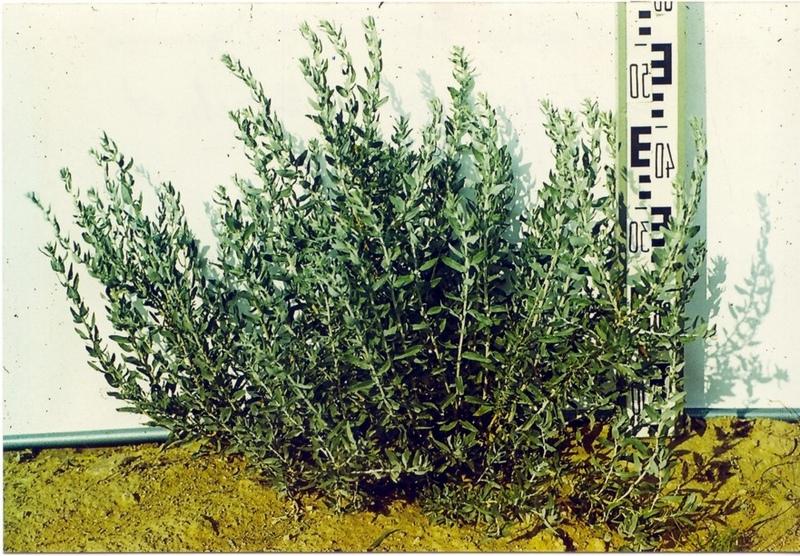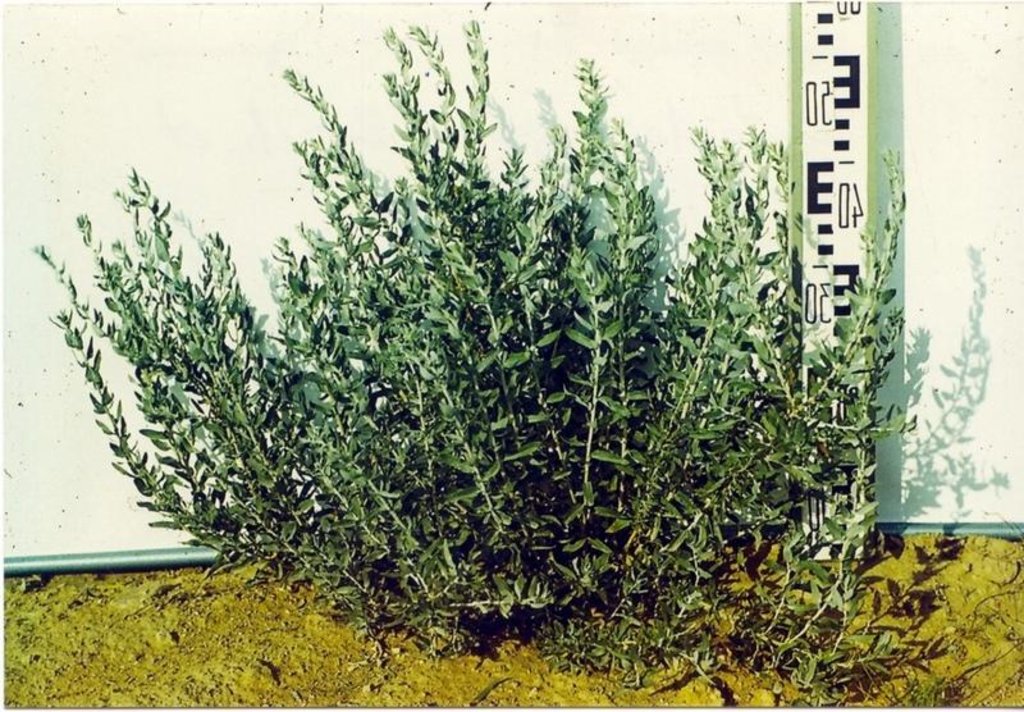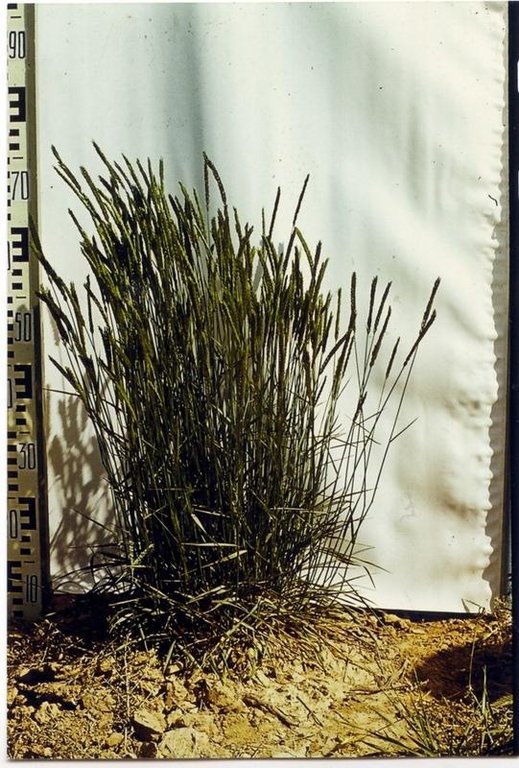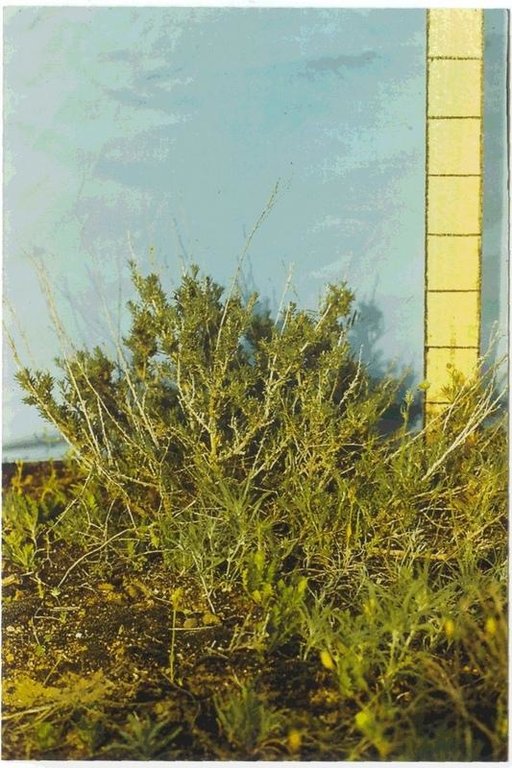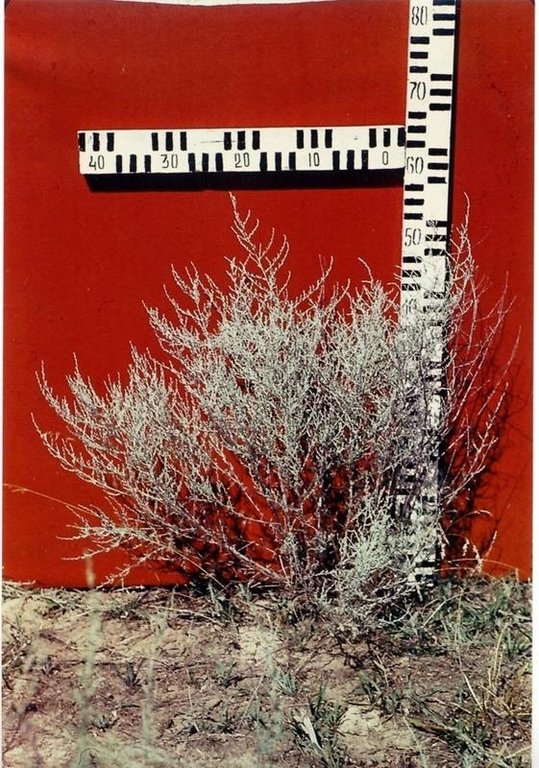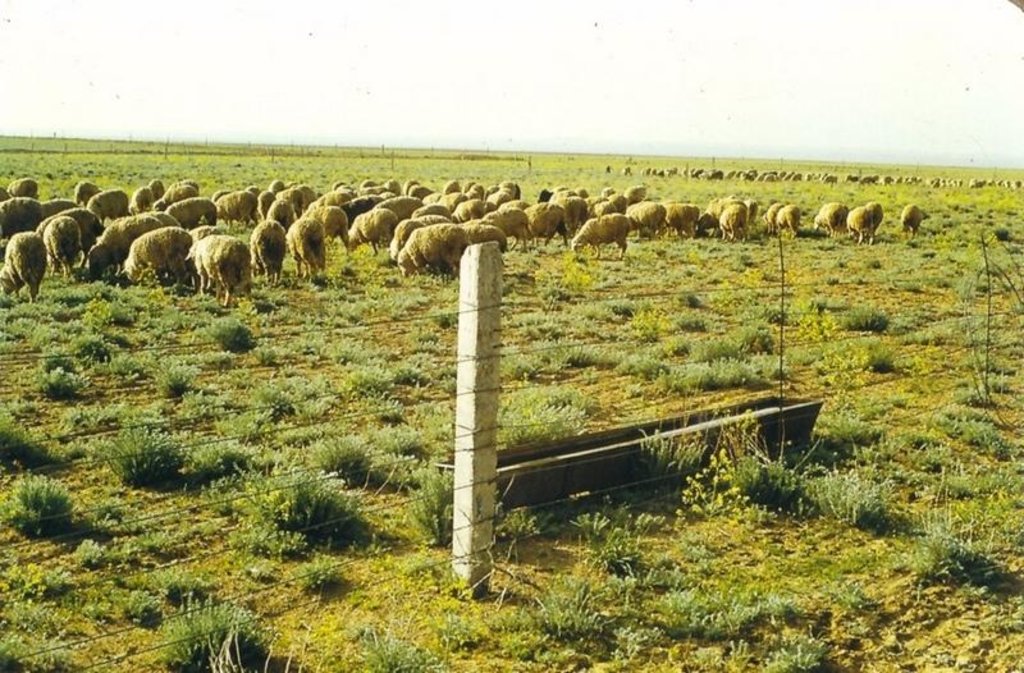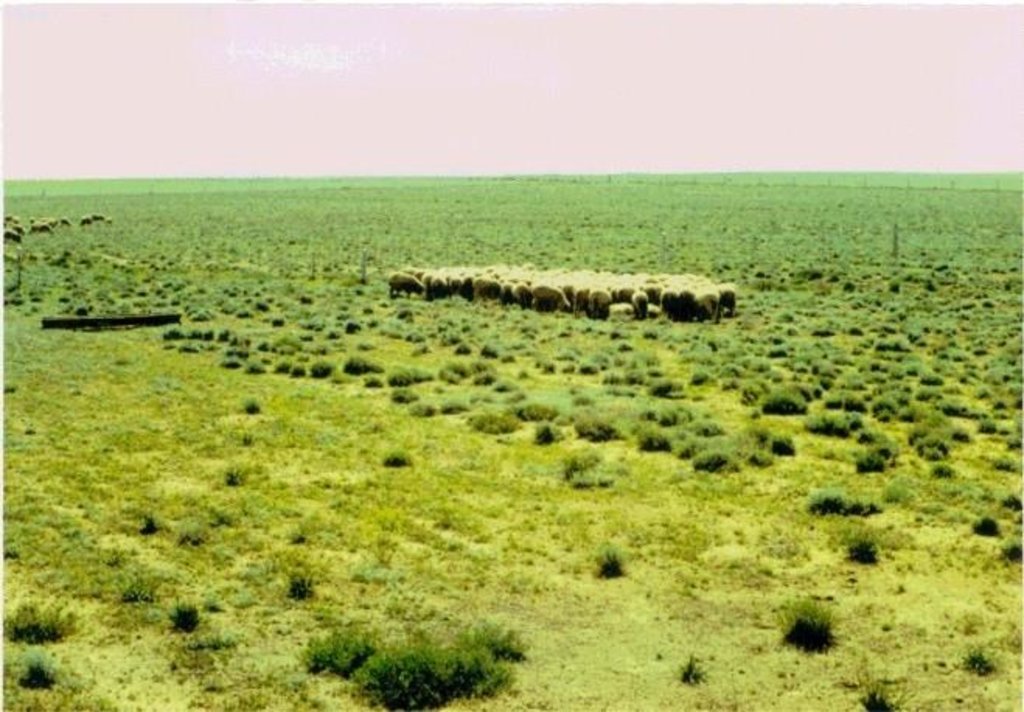Creation of artificial pasturable phytocenosis at north desert subzone [哈萨克斯坦]
- 创建:
- 更新:
- 编制者: Unknown User
- 编辑者: –
- 审查者: David Streiff, Alexandra Gavilano
Creation of artificial pasturable phytocenosis at north desert subzone
technologies_1093 - 哈萨克斯坦
查看章节
全部展开 全部收起1. 一般信息
1.2 参与该技术评估和文件编制的资源人员和机构的联系方式
关键资源人
SLM专业人员:
Yurchenko Vladimir
SPC for livestock husbandry and veterinary, Ministry of agriculture of the Republic of Kazakhstan
哈萨克斯坦
SLM专业人员:
Alimaev Ilya
SPC for livestock husbandry and veterinary, Ministry of agriculture of the Republic of Kazakhstan
哈萨克斯坦
SLM专业人员:
Sisatov Jeksembai
SPC for livestock husbandry and veterinary, Ministry of agriculture of the Republic of Kazakhstan
哈萨克斯坦
SLM专业人员:
Kildibekova Guliya
SPC for livestock husbandry and veterinary, Ministry of agriculture of the Republic of Kazakhstan
哈萨克斯坦
有助于对技术进行记录/评估的机构名称(如相关)
Ministry of Agriculture of Kazakhstan (MoA) - 厄立特里亚1.3 关于使用通过WOCAT记录的数据的条件
编制者和关键资源人员接受有关使用通过WOCAT记录数据的条件。:
是
1.5 参考关于SLM方法(使用WOCAT记录的SLM方法)的调查问卷
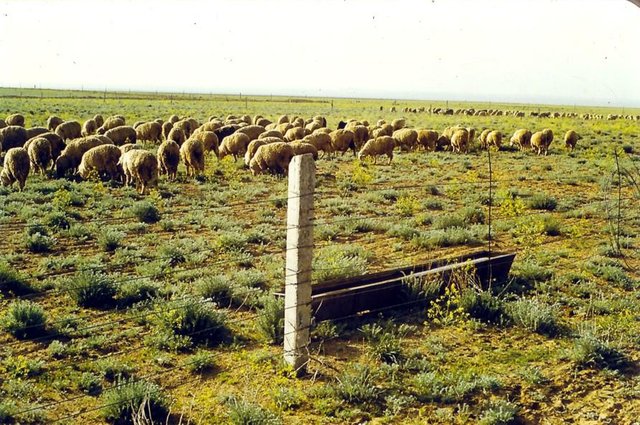
Creation of sowed pastures from subshrubs and forbs … [哈萨克斯坦]
Increase of use effectiveness of limited resources of soil moisture in desert with sowing xerophyte fodder plants
- 编制者: Irina Skorintseva
2. SLM技术的说明
2.1 技术简介
技术定义:
Selection fodder plants and the technology of their cultivation for maximal use of poor soil water in desert
2.2 技术的详细说明
说明:
1. Artificial fodder rangelands in desert are created in strong degraded sites by sowing of fodder subshrubs and perennial forbs.
2. The list of the fittest fodder plants, which can maximally effective use the poor desert soil resources, is established
3. The most capable plants belong to Chenopodiacia family: Kohia p., Salsola o., Ceratoides p., Artemisia t., to Areminea family – Agropyrum desertorum.
4. The preparation of soil for sowing is of sparing sort of under-winter ploughing (spike-tooth disk harrow). Sowing of subshrubs is carried out under winter in treated soil with sowing standard 2 million germinating seeds per 1 hectare. Agropyrum d. is sowed in early spring. Before sowing seeds are mixed in equal quantities at total sowing standard 2 million germinating seeds per 1 hectare.
5. The grazing is prohibited in the first year. It is possible to use the sowed site moderately since the latter half of the second year.
The cost of 1 hectare is 2700-3100 tenge with taking into account petrol, salary etc.
2.3 技术照片
2.5 已应用该技术的、本评估所涵盖的国家/地区/地点
国家:
哈萨克斯坦
区域/州/省:
Jambyl, Almaty oblasts.
有关地点的进一步说明:
South Pribalkhashye, Eastern part of sand Moynkum massif
具体说明该技术的分布:
- 均匀地分布在一个区域
如果技术均匀分布在一个区域,则指定覆盖的区域(单位为平方千米):
8000.0
如果不知道精确的区域,请注明大致覆盖的区域:
- 1,000-10,000 平方千米
注释:
Total area covered by the SLM Technology is 8000 km2.
up to 1991 25-30 thousand hectares were created with such method in South-East of Kazakhstan.
2.6 实施日期
如果不知道确切的年份,请说明大概的日期:
- 不到10年前(最近)
2.7 技术介绍
详细说明该技术是如何引入的:
- 通过土地使用者的创新
注释(项目类型等):
SPCLHV( Scientific Production Centre for Livestock Husbandry and Veterinary)
3. SLM技术的分类
3.1 该技术的主要目的
- 改良生产
- 创造有益的经济影响
3.2 应用该技术的当前土地利用类型

农田
- 乔木与灌木的种植
乔木和灌木种植 - 指定作物:
- 饲料树木(朱缨花属、银合欢、前庭草等)
- 水果、其他
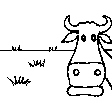
牧场
粗放式放牧:
- 游牧
- 半游牧畜牧业
集约放牧/饲料生产:
- 改良牧场
动物类型:
- 绵羊

森林/林地
- Artemisia and Ceratoides (Krascheninnikovia)
注释:
Shrub species: Combination of Kochia, Solsola, Artemisia and Ceratoides (Krascheninnikovia)
Major land use problems (compiler’s opinion): The pasture production decline, containment of livestock husbandry development, low living standards of stock-breeders
Major land use problems (land users’ perception): Complication of animal maintenance, worsening of abode ecological conditions, forced migration
Number of growing seasons per year: 2
Longest growing period in days: 180; Longest growing period from month to month: Mar - Oct; Second longest growing period in days: 45; Second longest growing period from month to month: Sep - Oct
3.4 供水
该技术所应用土地的供水:
- 雨养
3.5 该技术所属的SLM组
- 改良植物品种/动物品种
3.6 包含该技术的可持续土地管理措施
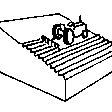
农艺措施
- A1:植被和土壤覆盖层
- A3:土壤表面处理
- A5:种子管理,改良品种
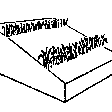
植物措施
注释:
Main measures: agronomic measures
Secondary measures: vegetative measures
Type of agronomic measures: early planting, relay cropping, mixed cropping / intercropping, minimum tillage
3.7 该技术强调的主要土地退化类型

土壤水蚀
- Wt:表土流失/地表侵蚀
3.8 防止、减少或恢复土地退化
具体数量名该技术与土地退化有关的目标:
- 修复/恢复严重退化的土地
4. 技术规范、实施活动、投入和成本
4.1 该技术的技术图纸
技术规范(与技术图纸相关):
Technical knowledge required for field staff / advisors: high
Technical knowledge required for land users: moderate
Main technical functions: improvement of ground cover
Early planting
Material/ species: Agropurum
Relay cropping
Material/ species: subshrubs
Mixed cropping / intercropping
Material/ species: subshrubs
Minimum tillage
Remarks: 8-10cm
Vegetative measure: strip width 25-50 m with the some spacing
Vegetative material: O : other
Number of plants per (ha): 30-30
Spacing between rows / strips / blocks (m): 25-50
Vegetative measure: Vegetative material: O : other
Other species: Combination of Kochia+Solsola+Artemisia+Ceratoides
Diversion ditch/ drainage
Spacing between structures (m): 1
Depth of ditches/pits/dams (m): 0,3
Width of ditches/pits/dams (m): 0,5
Length of ditches/pits/dams (m): 500,0
Construction material (earth): The ground wich dug from channels used for strengthening of board
Construction material (other): The polyethylene film cover a bottom of the channal
4.2 有关投入和成本计算的一般信息
具体说明成本计算所用货币:
- 美元
注明雇用劳工的每日平均工资成本:
7.00
4.3 技术建立活动
| 活动 | 时间(季度) | |
|---|---|---|
| 1. | sowing | november |
| 2. | Inspection of territories | In the spring cropping sea sun |
| 3. | Excavation of channals | Before cropping |
| 4. | Creation a drain | After planting |
4.4 技术建立所需要的费用和投入
| 对投入进行具体说明 | 单位 | 数量 | 单位成本 | 每项投入的总成本 | 土地使用者承担的成本% | |
|---|---|---|---|---|---|---|
| 劳动力 | All the Labour | ha | 1.0 | 9.0 | 9.0 | 100.0 |
| 设备 | Machine use | ha | 1.0 | 13.0 | 13.0 | 100.0 |
| 植物材料 | Seeds | ha | 1.0 | 16.0 | 16.0 | 100.0 |
| 技术建立所需总成本 | 38.0 | |||||
| 技术建立总成本,美元 | 38.0 | |||||
注释:
Duration of establishment phase: 12 month(s)
4.5 维护/经常性活动
| 活动 | 时间/频率 | |
|---|---|---|
| 1. | Soil surface treatment | autumn / 1 time. |
| 2. | Harrowing | autumn / 1 time. |
| 3. | Sowing of subshrubs | November, December. / 1 time. |
| 4. | Sowing of Agropyrum with postsowing packin | March / 1 time. |
| 5. | harrowing | early /1 time |
| 6. | Inspection of the channels state of drainage film | before watering/4-5 times |
| 7. | Replacement of a drainage film | before watering/as reguired 4-5 times |
4.6 维护/经常性活动所需要的费用和投入(每年)
| 对投入进行具体说明 | 单位 | 数量 | 单位成本 | 每项投入的总成本 | 土地使用者承担的成本% | |
|---|---|---|---|---|---|---|
| 劳动力 | All the labour | ha | 1.0 | 3.0 | 3.0 | 100.0 |
| 设备 | Machine use | ha | 1.0 | 4.0 | 4.0 | 100.0 |
| 技术维护所需总成本 | 7.0 | |||||
| 技术维护总成本,美元 | 7.0 | |||||
注释:
Machinery/ tools: .tractor ÌÒÇ, flat hoe, seeder, roller
For conditions of degraded wormwood-ephemeron pastures in light clay sand carbonate serozems in north kazakhstan desert subzone
4.7 影响成本的最重要因素
描述影响成本的最决定性因素:
value of petrol
5. 自然和人文环境
5.1 气候
年降雨量
- < 250毫米
- 251-500毫米
- 501-750毫米
- 751-1,000毫米
- 1,001-1,500毫米
- 1,501-2,000毫米
- 2,001-3,000毫米
- 3,001-4,000毫米
- > 4,000毫米
指定年平均降雨量(若已知),单位为mm:
227.00
农业气候带
- 干旱
North Kazkhstan desert
5.2 地形
平均坡度:
- 水平(0-2%)
- 缓降(3-5%)
- 平缓(6-10%)
- 滚坡(11-15%)
- 崎岖(16-30%)
- 陡峭(31-60%)
- 非常陡峭(>60%)
地形:
- 高原/平原
- 山脊
- 山坡
- 山地斜坡
- 麓坡
- 谷底
垂直分布带:
- 0-100 m a.s.l.
- 101-500 m a.s.l.
- 501-1,000 m a.s.l.
- 1,001-1,500 m a.s.l.
- 1,501-2,000 m a.s.l.
- 2,001-2,500 m a.s.l.
- 2,501-3,000 m a.s.l.
- 3,001-4,000 m a.s.l.
- > 4,000 m a.s.l.
关于地形的注释和进一步规范:
Altitudinal zone: 490-510 m a.s.l.
5.3 土壤
平均土层深度:
- 非常浅(0-20厘米)
- 浅(21-50厘米)
- 中等深度(51-80厘米)
- 深(81-120厘米)
- 非常深(> 120厘米)
土壤质地(表土):
- 粗粒/轻(砂质)
表土有机质:
- 低(<1%)
如有可能,附上完整的土壤描述或具体说明可用的信息,例如土壤类型、土壤酸碱度、阳离子交换能力、氮、盐度等。:
Soil depth on average: Dust content is up to 80% in autumn
Soil texture (topsoil): Clay sand light serozems
Soil fertility is very low with a humus content of 0.8-1.2%
Topsoil organic matter: 0.8-1.2%
Soil drainage / infiltration is medium due to crushed stone base
Soil water storage capacity is in spring 17-21 and in autumn the producing moisture is lacking
5.6 应用该技术的土地使用者的特征
生产系统的市场定位:
- 商业/市场
相对财富水平:
- 丰富
- 非常丰富
说明土地使用者的其他有关特征:
Population density: 10-50 persons/km2
Annual population growth: 0.5% - 1%
10% of the land users are very rich and own 10% of the land.
10% of the land users are rich and own 40% of the land.
10% of the land users are average wealthy and own 30% of the land.
60% of the land users are poor and own 10% of the land.
Market orientation of production system: The possibility of primary accumulation of circulating
5.7 应用该技术的土地使用者使用的平均土地面积
- < 0.5 公顷
- 0.5-1 公顷
- 1-2 公顷
- 2-5公顷
- 5-15公顷
- 15-50公顷
- 50-100公顷
- 100-500公顷
- 500-1,000公顷
- 1,000-10,000公顷
- > 10,000公顷
注释:
It is complicated to evaluate the size of grazing land per household because the free grazing is practiced at lands appurtenant to rural akimats
5.8 土地所有权、土地使用权和水使用权
土地所有权:
- 社区/村庄
土地使用权:
- 自由进入(无组织)
6. 影响和结论性说明
6.1 该技术的现场影响
社会经济效应
生产
作物生产
饲料生产
饲料质量
注释/具体说明:
Increase of protein content from 4-5% to 11-14%
其它社会经济效应
Stabilization of traditional porture livestock husbandry
注释/具体说明:
Increase of head and production quality improvement....
社会文化影响
社区机构
生态影响
土壤
土壤覆盖层
注释/具体说明:
Stabilization
土壤流失
SLM之前的数量:
5
SLM之后的数量:
0
其它生态影响
biodiversity
注释/具体说明:
Enrichment of local wild flora
6.4 成本效益分析
技术收益与技术建立成本相比如何(从土地使用者的角度看)?
长期回报:
稍微积极
技术收益与技术维护成本/经常性成本相比如何(从土地使用者的角度看)?
短期回报:
积极
6.5 技术采用
- 11-50%
如若可行,进行量化(住户数量和/或覆盖面积):
12 households coverin 20 percent of stated area
在所有采用这项技术的人当中,有多少人是自发的,即未获得任何物质奖励/付款?:
- 91-100%
注释:
Comments on acceptance with external material support: survey results
12 land user families have adopted the Technology without any external material support
Comments on spontaneous adoption: survey results
There is a little trend towards spontaneous adoption of the Technology
Comments on adoption trend: stock breeders advantaged and of moderate means can allow the introduction of SWC-technology in small area for now
6.7 该技术的优点/长处/机会
| 土地使用者眼中的长处/优势/机会 |
|---|
|
providing of animals with fodder. How can they be sustained / enhanced? constantly |
|
improvement of ecological conditions in places of abode How can they be sustained / enhanced? constantly |
|
refusal from forced migration How can they be sustained / enhanced? constantly |
| 编制者或其他关键资源人员认为的长处/优势/机会 |
|---|
|
increased productivity of rangeland How can they be sustained / enhanced? .for 20 and more years |
|
localization of degradation centers How can they be sustained / enhanced? constantly |
|
assured feeding of animals with full fodder How can they be sustained / enhanced? 20 and more years |
|
Maintenance of biodiversity How can they be sustained / enhanced? constantly |
|
improvement of living standards of rural community people. How can they be sustained / enhanced? constantly |
6.8 技术的弱点/缺点/风险及其克服方法
| 土地使用者认为的弱点/缺点/风险 | 如何克服它们? |
|---|---|
| high one time expenses | state grants and awards, credits are needed |
| 编制者或其他关键资源人员认为的弱点/缺点/风险 | 如何克服它们? |
|---|---|
| Insufficient development of fodder plant seed-farming | arrangement schemes of primary and marketable seed-farming at research organizations and special farmings of oblasts; decreasing of petrol costs |
7. 参考和链接
7.1 信息的方法/来源
7.2 参考可用出版物
标题、作者、年份、ISBN:
1.Agribiological aspects of creation and use of pasturable phytocenoses in north desert subzone. Abstract of doctoral thesis, Alimaev I., Almaty,. 2001.
可以从哪里获得?成本如何?
Almaty, free. Tel 8-(3272) 21-44-76
标题、作者、年份、ISBN:
2.Fodder production of south-east and east regions. /Pastures and haylands of Kazakhstan, Alimaev I., Isakov K., and others, Almaty. 1998.
可以从哪里获得?成本如何?
Almaty, free. Tel 8-(3272) 21-44-76
链接和模块
全部展开 全部收起链接

Creation of sowed pastures from subshrubs and forbs … [哈萨克斯坦]
Increase of use effectiveness of limited resources of soil moisture in desert with sowing xerophyte fodder plants
- 编制者: Irina Skorintseva
模块
无模块


